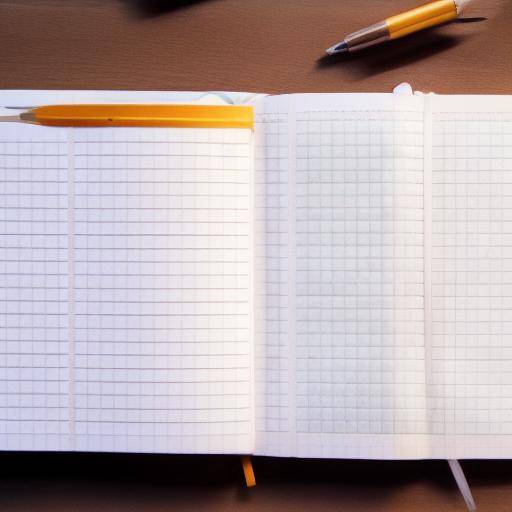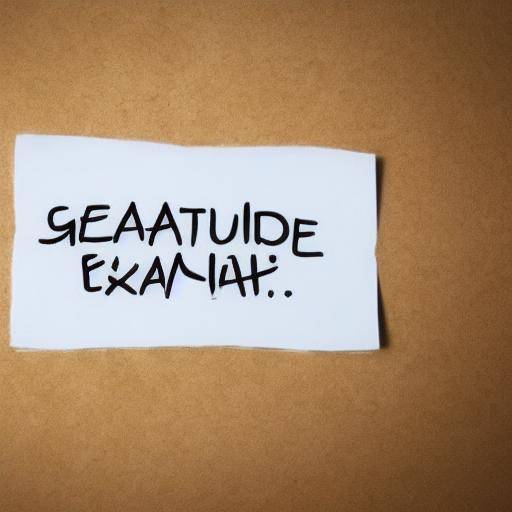
The journaling, also known as carrying a journal or writing a personal journal, has gained popularity as a powerful tool for self-evaluation and personal development. Many people have discovered the benefits of this habit to reflect, express emotions and clarify thoughts. In this article, we will explore in detail how to use journaling as an effective tool for self-evaluation and personal growth.
Introduction
Journaling, in its simplest form, involves spending time regularly to express thoughts, emotions, day-to-day events, goals and personal reflections in a journal or booklet. Beyond being a simple narrative of everyday life, journaling has become a powerful tool for self-evaluation and personal development. In this article, we will explore how the act of writing regularly can foster self-consciousness, personal growth and achieving goals. We will also analyze how journaling can be used as a form of self-assessment, allowing people to evaluate their progress, identify patterns and set clear goals for the future.
History and Background
The journaling has a long history dating back centuries. In ancient times, prominent philosophers, leaders and personal figures used personal writing as a form of self-reflection and self-assessment. From the Journals of Anaïs Nin to the writings of Marcus Aurelius, the act of carrying a journal has been a valuable tool to explore the human mind and soul.
Over time, journaling has evolved to adapt to changing needs and lifestyles. From handwritten newspapers to digital applications, people have found different ways to carry a diary. However, the fundamental purpose remains constant: to use journaling as a tool of self-assessment and personal development.
In modern history, journaling has gained popularity thanks to its adoption by influential figures in the field of personal growth and emotional well-being. In this way, journaling has acquired greater recognition as an effective tool for self-assessment, follow-up to progress and manifestation of goals and wishes.
Deep analysis
The journaling offers a wide range of benefits that contribute to self-evaluation and personal development. One of the highlights is its ability to build self-consciousness. By writing regularly about experiences, emotions and thoughts, people can develop a greater understanding of themselves and the patterns that influence their actions and decisions.
Furthermore, the act of writing in a journal can provide mental and emotional clarity. This clarity can be fundamental for self-assessment, as it allows people to identify areas of strength, challenges and growth opportunities. Journaling can also serve as a tangible record of personal progress, facilitating the assessment of goals, objectives and results.
However, journaling also entails challenges, especially in terms of consistency and commitment. Maintaining a regular writing habit can be difficult for some people, and it is important to address these challenges by using journaling as a self-assessment tool.
Comprehensive review
By considering journaling as a self-assessment tool, it is essential to explore its various applications and best practices. Journaling can be used in many ways, from following up emotions to setting concrete goals. Through case studies and practical examples, we can understand how journaling can be adapted to different needs and contexts.
In examining various perspectives and opinions on journaling, we can get a complete view of their benefits and limitations. It is important to recognize that journaling is not a unique solution for all, and that its effectiveness can vary according to individual preferences and needs. At the same time, identifying common best practices and approaches can be invaluable to those seeking to use journaling as a tool for self-assessment and personal growth.
Comparative analysis
Similarly, self-evaluation is a process that involves reflection on one's own performance, strengths, areas of improvement and achievements. By comparing journaling and self-assessment, we can identify similarities and differences that will help better contextualize your relationship and practical applications. Both concepts share the focus on personal reflection, the identification of patterns and the search for growth and continuous improvement. However, journaling focuses on writing and documenting experiences, thoughts and emotions, while self-assessment encompasses a wider process that can include job performance evaluation, skills analysis and competencies, and alignment with professional and personal goals.
On the other hand, personal development is intertwined with journaling and self-assessment significantly. The act of writing in a journal can be a powerful tool to foster personal growth by providing clarity, self-knowledge and a sense of direction. Self-assessment, for its part, is critical to identifying areas of improvement, establishing realistic goals and measuring progress towards personal development. By understanding how these three concepts relate and complement each other, we can leverage their collective potential to boost positive change in our lives.
Practical Tips and Accessible Recommendations
For those who wish to use journaling as a self-assessment tool, it is essential to have practical advice and actionable recommendations that allow them to make the most of this practice. Some suggestions include setting a regular schedule to write in the journal, experimenting with different journaling approaches (such as free writing, daily gratitude, or creative visualization), and establishing reflective questions to guide self-assessment through journaling. In addition, creating an enabling environment for journaling, whether a quiet space, relaxing music or the choice of an inspiring notebook, can foster creativity and deep reflection.
Industry Perspectives and Expert Reviews
By collecting industry perspectives and expert opinions on journaling, self-assessment and personal development, we can enrich our knowledge of these practices and their applications. Professionals in the field of emotional well-being, life coaches, psychologists and personal growth experts can offer valuable insights on how to integrate journaling into a holistic approach of self-evaluation and personal development. Their views on the benefits, challenges and effective strategies can illuminate new perspectives and innovative approaches in the use of journaling as a tool for self-assessment.
Case studies and practical applications
In order to expand our understanding of journaling power as a self-assessment tool, case analysis and practical applications can provide a detailed view of how individuals and practitioners incorporate journaling into their daily lives. From personal testimonies to business examples, these case studies can illustrate the tangible impact of journaling on self-assessment and personal development. By exploring real experiences, we can identify common patterns, challenges and successful strategies that will inspire us to apply journaling more effectively in our own search for self-knowledge and growth.
Future trends and forecasts
In a context of constant change and evolution, it is important to consider future trends and forecasts related to journaling, self-evaluation and personal development. The advancement of technology, the growing awareness of emotional well-being and the demand for customized approaches to growth and self-realization could influence how people use journaling as a tool of self-assessment in the future. In exploring these emerging trends and forecasts based on current data and expert opinions, we can prepare ourselves to adopt innovative and effective approaches in the use of journaling as a tool for self-assessment and personal development.
Conclusion
In short, journaling offers a powerful pathway for self-assessment and personal development by providing space for reflection, self-awareness and mental clarity. By integrating journaling into our daily routine, we can explore our inner world, identify significant patterns and set specific goals for growth and continuous improvement. In addition, when comparing journaling, self-evaluation and personal development, we can appreciate their interconnection and the synergistic potential they offer to enrich our lives.
FAQs
What is journaling and how does it relate to self-evaluation?
Journaling, or carrying a personal journal, involves writing regularly about thoughts, emotions, experiences and reflections. This practice relates to self-assessment by providing a space for deep reflection, self-awareness and evaluation of personal progress.
What are the benefits of journaling for self-evaluation?
Journaling can foster self-consciousness, provide mental and emotional clarity, and serve as a tangible record of personal progress. These benefits are fundamental to self-evaluation and personal development.
How can I start using journaling as a self-assessment tool?
To start using journaling as a self-assessment tool, it is useful to set a regular schedule to write, experiment with different journaling approaches and set reflexive questions to guide self-assessment through journaling.
What is the difference between journaling and self-evaluation?
Journaling focuses on writing and documenting experiences, thoughts and emotions, while self-assessment encompasses a wider process that can include reflection on performance, goals and personal growth.
What role does self-evaluation play in personal development?
Self-assessment is critical to identifying areas of improvement, establishing realistic goals and measuring progress towards personal development. By reflecting on performance and experiences, people can cultivate greater self-knowledge and personal growth.
How can future trends influence the use of journaling as a self-assessment tool?
Future trends, such as the advancement of technology and the growing awareness of emotional well-being, could influence how people use journaling as a tool for self-assessment in the future. The use of digital applications and custom approaches could gain more relevance in the context of self-evaluation and personal development.
Concluding, journaling is a powerful tool that can enhance self-assessment and personal development. By integrating the habit of writing regularly into a journal with the practice of reflexive self-evaluation, people can foster greater self-knowledge and significant personal growth.






















































